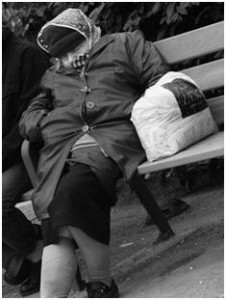2011 Poverty and Capability Approach
 The challenges for a poverty reduction strategy: the responses of the alliances.
The challenges for a poverty reduction strategy: the responses of the alliances.
ACW, MOC and their Italian partner CNCA, organised a very interesting seminar in Rome where we looked for soms answers to the challenges for a poverty reduction.
The program was ambitious. We wanted to analyse the actual social state of Europe and the member states, to look critical to the European answers, and to give the answers of the alliances to the social policy in their countries. The second day we invested in the capability approach as a possible new paradigma to develop a new social policy.
A more comprehensive report will be published in a couple of days. Here you will find a brief overview of the program.
Program
Peter Lelie (BEL, expert-counsellor of the ministry of social affairs) started the seminar with an extended view on the social situation inEurope, the poverty reduction policies and EU 2020.
We asked three experts to evaluate the social policy of Europe from an socio-economic perspective: Jeremy Leaman, Professor in political sciences ( UK, Loughborough University, EuroMemo Group); Bart Vanhercke, Co-Director (BEL, Observatoire social Européen) and Chiara Saraceno, Professor in Social Sciences (IT, Wisseschaftszentrum Berlin fuer Sozialforschung)
We wanted to know more about the Italian context: Maurizio Franzini, Professor in public economics, and Giovanbattista Sgritta, Professor in sociology, both from the University of Rome “La Sapienza” gave a strong evaluation of the social and poverty policy of Italy.
How do the alliances respond to the social situation in their country and do they have they requirements? CNCA, Decenniumdoelen, Réseau belge de lutte contre la pauvreté, the Poor can’t pay, The Poverty Alliance and CEDAG gave us an important imput for a list of demands to the european politicians.
The second day we explored a broader view on poverty. We looked at the capability approach as a new paradigma to develop a new social policy.
Jean De Munck, Professor in sociology (BEL, Louvain-la-Neuve) gave us an introduction to the capability approach. Robert Lindley, Prof. and Director of the Institute for Employment Research (UK, Warwick University) explore further the theme and looked at the theory of Social Capital as a possible part of the Capability Approach. Ides Nicaise, Professor in social and economic sciences (BEL, KUL) ended the first session with an evaluation of the Capability Approach from a perspective of the problems of inclusion.
Then we deepened the theme of capability approach. First we looked at the importance of participation for poverty reduction.
Letizia Cesarini Sforza, expert ( IT, EAPN) gave us a very good view of the problems of participation in Italy. Ortrud Lessmann, Professor in economic sciences (GER, HSUUniversity) analysed the theory of the capability approach from the view of participation.
The last session was about the capability approach and work.
Jean-Michel Bonvin, Professor of Sociology (SWITZ, University of Genève) explored the activation policies with the tools from the capability approach. Philippe Pochet, Director ( BEL, ETUI) and Silvia Stefainovich, Member ( IT,CISL ) gave some fine remarks.
The seminar was concluded by Pierre Defraigne, Professor in economic sciences and director ( BEL, Madariaga Foundation) and by Thierry Jacques, President of MOC.
Documents of the Rome seminar of April 2011
- A capability approach to social inclusion: investing in the poor. Ides Nicaise
- Capability approach and work: riflessioni sulla situazione italiana. Silvia Stefanovichj. CISL Nazionale
- Institutional and Political Dimensions of a Capability Politics. Jean De Munck
- Is the ‘Social Dimension of Europe 2020’ an Oxymoron? Bart Vanhercke, OSE
- Réponses par les alliances. Les buts de la décennie. Michel Debruyne
- report of the conference by CEDAG
- Rich and poor in Italy. Which policies against inequality? Maurizio Franzini, Sapienza University of Rome
- Social Capital, Capability, and the European Project. Robert Lindley
- The answer from the alliances. CEDAG
- The Answers from the alliances. The Scottish and UK Poverty alliance. Peter Kelly
- The capability approach and participation. Ortrud Lessmann
- The capability approach to fight poverty. Jean De Munck
- The Crisis in Ireland – The Poor can’t Pay
- The Fiscal Challenges of Poverty Reduction. Jeremy Leaman, Euromemo Group
- The Social Situation in the EU and the Europe 2020 Strategy. Peter Lelie

Comments are closed